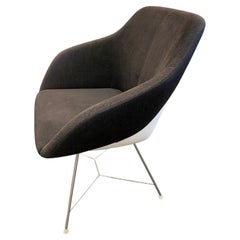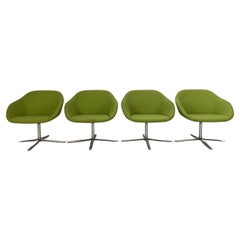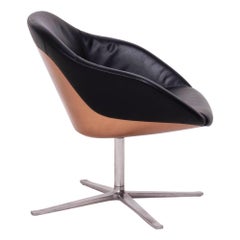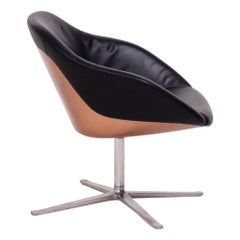Knoll Turtle
2010s European Chairs
Fabric
2010s Chairs
Fabric
Recent Sales
1990s German Mid-Century Modern Lounge Chairs
Leather
1990s German Mid-Century Modern Lounge Chairs
Leather
Early 2000s German Modern Stools
Leather
Early 2000s German Modern Stools
Leather
Early 2000s German Modern Stools
Leather, Fiberglass
21st Century and Contemporary German Stools
Aluminum
Early 2000s German Modern Stools
Leather
People Also Browsed
Vintage 1960s American Mid-Century Modern Lounge Chairs
Iron
Mid-20th Century Italian Post-Modern Coffee and Cocktail Tables
Concrete, Metal
Late 20th Century French Mid-Century Modern Wardrobes and Armoires
Glass, Wood, Oak
Early 20th Century French Art Deco Flush Mount
Bronze
Vintage 1960s Italian Mid-Century Modern Sofas
Fabric, Plastic
Vintage 1950s Swedish Wall Lights and Sconces
Brass
2010s North American Modern Side Chairs
Hardwood
2010s Austrian Jugendstil Chandeliers and Pendants
Silk
Mid-20th Century American Mid-Century Modern Chairs
Metal
Mid-20th Century Italian Hollywood Regency Chandeliers and Pendants
Metal
Vintage 1970s Danish Mid-Century Modern Lounge Chairs
Stainless Steel
Mid-20th Century French Mid-Century Modern Buffets
Oak
Vintage 1970s Italian Mid-Century Modern Side Tables
Chrome
Antique 19th Century Italian Baroque Wall-mounted Sculptures
Walnut
Mid-20th Century Mid-Century Modern Dressers
Wood
Vintage 1970s Mid-Century Modern Fireplaces and Mantels
Foam
Walter Knoll for sale on 1stDibs
Inspired by the Bauhaus — founded in 1919 by Walter Gropius — Walter Knoll decided to bet big on modernism. He launched his eponymous German furniture maker in 1925, and the company has been going strong ever since.
Most design lovers are familiar with Knoll, the manufacturer of furniture by Eero Saarinen, Harry Bertoia, Marcel Breuer, Ludwig Mies van der Rohe and other modernist giants. It was founded by Hans Knoll in 1941 and led after his death by his wife, Florence Knoll, the doyenne of postwar American office interiors. In recent years, the company has added collections by Maya Lin, Rem Koolhaas, Frank Gehry and David Adjaye, among others, and encouraged customers to do what some of them had been doing all along: use Knoll’s “office furniture” at home.
Fewer Americans are familiar with Walter Knoll, the company Hans’s father founded in Stuttgart, Germany, in 1925 and later moved to nearby Herrenberg. That company has existed in the shadow of the larger U.S.-based Knoll for decades.
Both companies descended from the German manufacturer of ornate leather goods established by Wilhelm Knoll in 1866. In 1907, Wilhelm’s sons, Willy and Walter, took over the father’s business and started producing leather club chairs. Five years later, the company introduced its Nestra line of stripped-down wood and leather seating, foreshadowing the family’s future innovations.
In 1925, when he was 50, Walter Knoll launched the Walter Knoll Company, which soon released the revolutionary Prodomo line of chairs, whose upholstered seats and backs are supported by tubular metal frames. Other lightweight Walter Knoll pieces were used in the passenger compartment of the Hindenburg zeppelin.
In 1927, Walter Knoll furnished five apartments designed by Ludwig Mies van der Rohe for the Weissenhof Estate, 21 prototypes of “workers’ housing of the future” constructed as part of an exhibition in Stuttgart. A decade later, Walter’s son Hans, then 24, traveled to the United States to market his father’s furniture and to make a new life for himself in the New World. But inspired by his encounters with Jens Risom — a Danish-born designer who furthered Scandinavian modernism in the United States — Hans broke away from Walter, creating Knoll Associates (now known simply as Knoll). Florence Schust (later to become Hans’s wife) joined him in the company in 1943, and soon they were working with mid-century modern icons such as Saarinen and Bertoia on new designs and licensing Mies’s Barcelona chair.
After the war, with his factories destroyed and labor and materials in short supply, Walter Knoll turned to Hans for help. Hans sent over several pieces from his Vostra line, designed by Risom. Walter replaced the web seats with upholstery and launched his version of the Vostra at the New Living exhibition in Cologne in 1949. It became hugely successful, persuading many Germans still accustomed to traditional furniture to give modernism a go.
Walter Knoll retired in 1964, but his namesake firm continued growing in Germany. Just like the American Knoll, Walter Knoll has found that some customers want to use pieces originally meant as office furniture in their houses. In fact, these pieces give living and dining rooms a crispness that almost no residential furniture can match.
Find vintage Walter Knoll lounge chairs, sofas, tables and other furniture on 1stDibs.
Finding the Right Seating for You
With entire areas of our homes reserved for “sitting rooms,” the value of quality antique and vintage seating cannot be overstated.
Fortunately, the design of side chairs, armchairs and other lounge furniture — since what were, quite literally, the early perches of our ancestors — has evolved considerably.
Among the earliest standard seating furniture were stools. Egyptian stools, for example, designed for one person with no seat back, were x-shaped and typically folded to be tucked away. These rudimentary chairs informed the design of Greek and Roman stools, all of which were a long way from Sori Yanagi's Butterfly stool or Alvar Aalto's Stool 60. In the 18th century and earlier, seats with backs and armrests were largely reserved for high nobility.
The seating of today is more inclusive but the style and placement of chairs can still make a statement. Antique desk chairs and armchairs designed in the style of Louis XV, which eventually included painted furniture and were often made of rare woods, feature prominently curved legs as well as Chinese themes and varied ornaments. Much like the thrones of fairy tales and the regency, elegant lounges crafted in the Louis XV style convey wealth and prestige. In the kitchen, the dining chair placed at the head of the table is typically reserved for the head of the household or a revered guest.
Of course, with luxurious vintage or antique furnishings, every chair can seem like the best seat in the house. Whether your preference is stretching out on a plush sofa, such as the Serpentine, designed by Vladimir Kagan, or cozying up in a vintage wingback chair, there is likely to be a comfy classic or contemporary gem for you on 1stDibs.
With respect to the latest obsessions in design, cane seating has been cropping up everywhere, from sleek armchairs to lounge chairs, while bouclé fabric, a staple of modern furniture design, can be seen in mid-century modern, Scandinavian modern and Hollywood Regency furniture styles.
Admirers of the sophisticated craftsmanship and dark woods frequently associated with mid-century modern seating can find timeless furnishings in our expansive collection of lounge chairs, dining chairs and other items — whether they’re vintage editions or alluring official reproductions of iconic designs from the likes of Hans Wegner or from Charles and Ray Eames. Shop our inventory of Egg chairs, designed in 1958 by Arne Jacobsen, the Florence Knoll lounge chair and more.
No matter your style, the collection of unique chairs, sofas and other seating on 1stDibs is surely worthy of a standing ovation.



